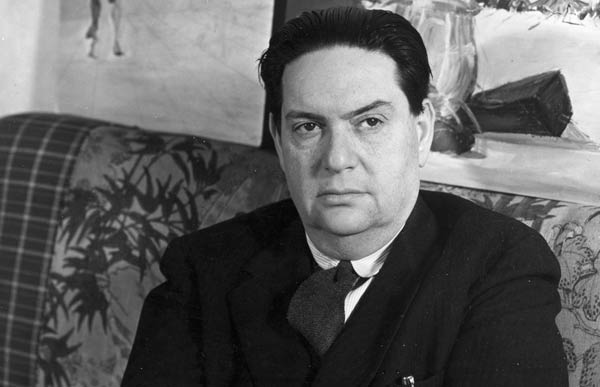REDISCOVER Darius Milhaud: Jewish Music of Southern France

June 22, 2016
Utter the name Darius Milhaud (1872–1974) and American Jewish music might not be the first thing that comes to mind. The prolific composer, known for polytonality and aleatoric approaches to composition, grew up in Aix-en-Provence in the south of France. He was a prime mover in the Parisian avant-garde and a major force in a group of adventurous composers known as Les Six.
But Milhaud also had an extended “American” period, one that began in 1940 when he emigrated to avoid capture by the Germans and lasted—in some fashion—for nearly the rest of life. It was during this period that he composed some of his most significant works drawing upon his Jewish experience and identity, as well as the minhag Carpentras: the unique Jewish liturgical tradition of his home region.
Milhaud’s undisputed Jewish masterpiece and most personal work is Service Sacré, a mammoth sacred service matched in grandeur and artistry only by Ernest Bloch’s Avodat Hakodesh. Described by Milhaud’s wife as a “a work of love” and “the relationship of a creature with his God,” the Service Sacré runs for more than an hour and requires a large orchestra and chorus, as well as a reader and vocal soloist.
|
|
|
Sacred music was not the only vein in which Milhaud drew upon the minhag Carpentras. His string quartet, Études sur des thèmes liturgiques du Comtat Venaissin, is awash in tune references and fragments from the musical repertoire of minhag Carpentras, including many motifs from music for holy days and festivals. After its 1973 premiere at a synagogue in Elkins Park, PA, the quartet largely fell into oblivion. It was recorded for the Milken Archive by the Juilliard String Quartet.
While the liturgical Jewish music of the south of France formed the basis for many of Milhaud’s works, biblical and religious themes figured in as well. His Opus Americanum, no. 2 is a richly textured orchestral suite based on the life of Moses.The Seven-Branched Candelabra is a seven-movement solo piano work inspired by seven holy days and festivals of the Jewish calendar. And Cantata from the Proverbs, which takes its name and text from three passages in the Book of Proverbs, is a complex suite for youth chorus.
Milhaud was also one of the seven composers who contributed to the Genesis Suite, an epic work for orchestra and several actors that dramatically tells the story of the Book of Genesis. The suite is unique among collaborative works, not only in its grandeur and subject matter, but also because it involved the two famous musical arch-enemies of the 20th century: Arnold Schoenberg and Igor Stravinsky. Milhaud’s movement concerns the story of Cain and Abel, particularly Abel’s intense confrontation with God after having killed his brother.
Darius Milhaud, who passed away on this date in 1974, came to America in 1940 as a refugee from war-torn Europe. Through his composing and teaching (Dave Brubeck was a student and confidant), he left a significant mark on the country that provided him safe haven and artistic opportunity unencumbered by his religious and cultural identity.



